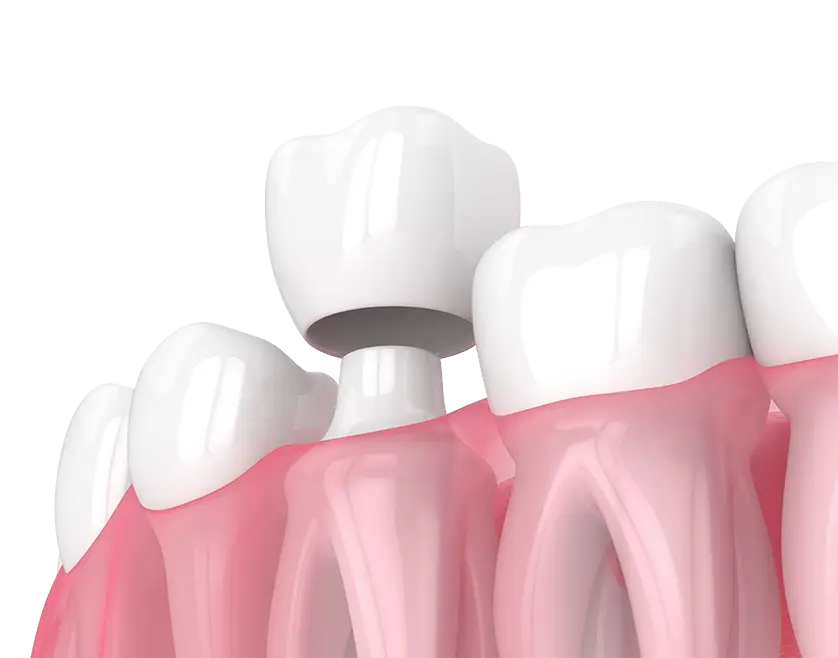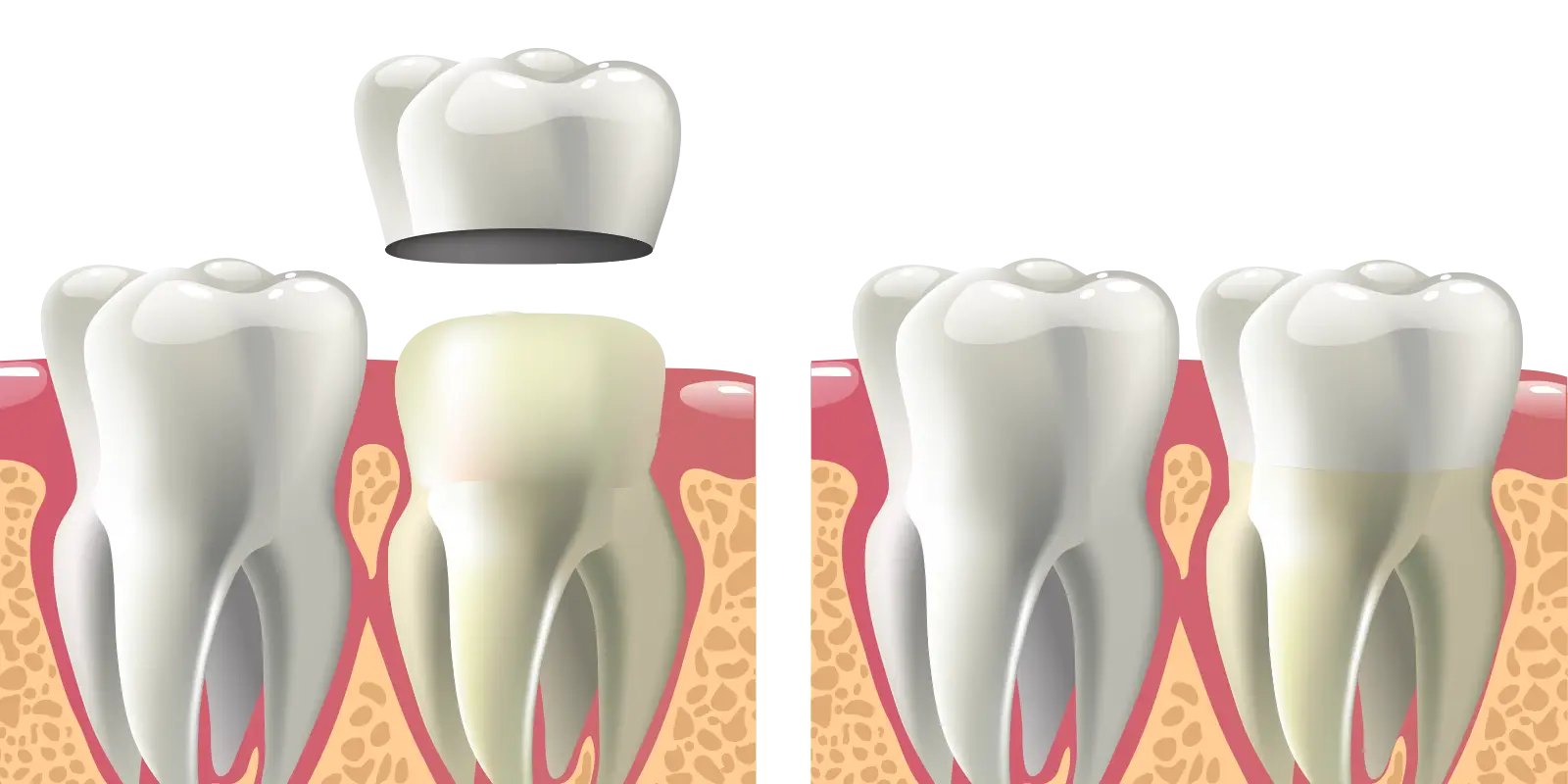Can dental crowns do more for you than dental fillings?
Dental crowns are widely appreciated for their ability to restore and protect damaged teeth. However, the cost of this treatment can be a concern for some, particularly when private insurance only covers a portion of the expenses. Faced with the financial demands of the procedure, patients may question whether they truly need crowns. This is especially true when they are under the impression that a simpler and cheaper fix may be found in regular dental fillings.
The best answer to this conundrum is that when you come in for a consultation, your dentist will assess your oral health and recommend the optimal solution for your unique characteristics. This treatment may be dental crowns, fillings or any number of other dental treatments. Here, we will help you understand why you might need a crown and how it specifically helps preserve and protect your teeth.
What is a dental crown?
A dental crown is a protective cap or covering that is fitted over a damaged or decayed tooth. This restores the tooth’s original shape, size, strength and appearance, bringing back its former glory. Where a tooth has experienced significant damage or decay, this a common restorative option is often used to improve its function and aesthetics..
Fillings can only effectively address smaller areas of decay, but crowns provide more significant restoration and protection by covering the entire tooth or a substantial portion of it. Typically customised in a laboratory setting, these crowns aim to prevent infection and offer crucial support to damaged teeth. Crowns can be made from a range of materials, including composite resin, porcelain, metal alloys or a combination. This provides flexibility in addressing your unique dental and financial situation.
Preventing infection and ensuring tooth integrity
One of the primary functions of dental crowns is to prevent the spread of infection. After a tooth undergoes a procedure to remove decay or infection, a crown acts as a protective shield, reducing the risk of bacteria infiltrating the treated area. The overall health of your teeth and gums can depend on such preventative action being taken as soon as the need arises.
Moreover, dental crowns are indispensable after a root canal procedure. As the nerve and blood supply are no longer viable in the treated tooth, crowns are necessary to safeguard its structural integrity. Without this protective measure, root canal-treated teeth can become brittle and prone to breakage.
Providing crucial support for damaged teeth
Dental crowns offer immediate support for damaged teeth, preserving their functionality and preventing further deterioration. Whether a tooth is chipped, cracked or broken, a crown acts as a reinforcement, ensuring that the tooth remains intact and minimising the risk of additional breakage. This extra support is particularly valuable in preventing misalignments or bite issues that can occur when the mouth adapts to a damaged tooth. By maintaining the proper alignment of your teeth, crowns contribute to a healthier bite and overall oral function.

When do you need dental crowns instead of fillings?
While the choice between dental crowns and fillings ultimately depends on individual circumstances, there are specific situations where opting for crowns is highly recommended:
Broken or chipped teeth: In cases of a broken or chipped tooth, dental crowns are strongly advised to prevent infection and further breakage.
Badly decayed teeth: When a tooth is severely decayed, affecting neighbouring teeth, a dental crown becomes essential. It acts as a protective cap, preventing the spread of bacteria to other areas of the mouth.
Large fillings: Older fillings that are too large may compromise the tooth’s security. In such cases, replacing the filling with a dental crown not only enhances aesthetics but also provides more strength to the tooth.
Will more of my natural tooth material be removed for dental crowns?
The amount of natural tooth that needs to be removed for dental crowns depends on the specific condition of the tooth and the type of crown being used. In general, some level of tooth preparation is necessary to accommodate the crown and ensure a proper fit.
For traditional crowns, which are often made of materials like porcelain-fused-to-metal or metal, a significant portion of the natural tooth structure may need to be removed. This is to create space for the crown, especially if there is extensive decay or damage.
On the other hand, advancements in dental technology have introduced more conservative options, such as minimal-prep or no-prep crowns. These types of crowns involve less removal of the natural tooth structure, making them a more conservative option. They are typically used in cases where the tooth damage is minimal and preserving more of the natural tooth is desirable.

What are same-day crowns?
Same-day crowns, often made possible through advanced technology e.g. CEREC CAD-CAM (in scanning, designing and manufacturing) offer a convenient and efficient alternative to traditional crown procedures. Unlike the conventional process that involves multiple visits, same-day crowns streamline the entire experience into a single appointment.
With CEREC technology, your dentist can create a custom crown right in the office using an intraoral scanner, inLab CAD Software and milling machine. This eliminates the need for messy impressions and the waiting time associated with sending moulds to an external laboratory.
How does it work?
During the same-day crown procedure, your dentist prepares the tooth, takes digital impressions and designs the crown using the CEREC system. The milling machine then carves the crown from a block of dental material, matching the shade of your natural teeth. Once the crown is ready, it is immediately placed on the prepared tooth, allowing you to leave the dental office with a fully restored smile in just one visit.
This innovative approach not only saves time but also offers a precise and aesthetically pleasing result. Same-day crowns have become a popular choice for those seeking a quick and efficient solution to dental restoration without compromising on quality.
Prioritise your oral health

The decision to choose dental crowns over fillings is a nuanced one, requiring consideration of individual oral health needs. Preventing infections, supporting damaged teeth and ensuring the overall integrity of your oral structures is a crucial part of maintaining your health and happiness, in which dental crowns can play a pivotal role. By understanding the situations where dental crowns are preferred, you can meaningfully engage in this conversation with your dentist, working in partnership to ensure you can live life to the full with optimal oral health and a confident smile.
Remember, discussing your situation with your dentist is your best way to get personalised advice tailored to your unique dental circumstances. Make well-informed choices today and you can expect a healthier and brighter smile tomorrow!



